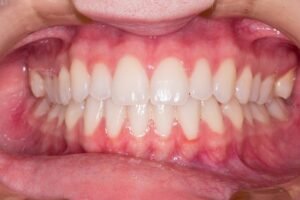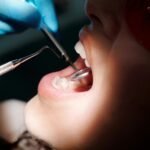Top 5 Tips to Stop Painful Cavity in Wisdom Tooth Preventative care, natural remedies & expert-approved secrets to a healthy, happy smile.
Are you sick of having a wisdom teeth cavity hurt all the time? Do you fear going to bed again and having to grit your teeth because you hurt every time you bite or chew? You’re not by yourself! Wisdom teeth cavities are a common issue, but you may bid the pain farewell and welcome a happy, healthy smile by using the appropriate techniques.
Tooth cavities in wisdom teeth can be extremely uncomfortable and detrimental to your general oral health. You’re not alone if you’re in pain, and there are practical solutions available.
What is a Cavity?
A cavity, also known as tooth decay, is a bacterial infection that causes demineralization of the hard tissues of the tooth, leading to the destruction of the tooth structure. It’s a common oral health problem that can affect people of all ages.
The Process of Cavity Formation:
- Plaque Formation: Bacteria in the mouth combine with food particles and saliva to form a sticky film called plaque.
- Acid Production: The bacteria in the plaque feed on sugars and starches, producing acid as a byproduct.
- Enamel Demineralization: The acid dissolves the minerals in tooth enamel, causing it to weaken and decay.
- Dentin Infection: If the decay reaches the dentin, the softer layer beneath the enamel, it can spread and infect the pulp.
- Pulp Infection: If the infection reaches the pulp, it can cause pain, and abscesses, and potentially lead to tooth loss.
Types of Cavities:
- Coronal Cavities: Occur on the chewing surfaces of teeth.
- Root Cavities: Occur on the roots of teeth, often in older adults.
- Recurrent Cavities: Occur when a previously filled cavity becomes decayed again.
- Smooth Surface Cavities: Occur on the smooth surfaces of teeth, often between teeth.
Wisdom Dental Cavities
It’s critical to comprehend the causes of wisdom teeth cavities. The rear of the mouth is home to these third molars, which usually erupt in your late teens or early twenties. This makes it challenging to clean them thoroughly, which encourages the growth of bacteria and food particles.
Common Reasons for Wisdom Tooth Cavities:
- Poor oral hygiene due to hard-to-reach location
- Food particles getting trapped in the gum tissue
- Infrequent dental check-ups and cleanings
Top 5 Tips to Stop Painful Cavity in Wisdom Tooth
Maintain Excellent Oral Hygiene
Good oral hygiene is the foundation of a healthy mouth. By brushing, flossing, and rinsing regularly, you can remove plaque and bacteria that can lead to cavities. Make sure to give your wisdom teeth a little extra TLC, as they can be prone to decay.
Steps to Improve Oral Hygiene:
- Brush Twice Daily: Use a toothbrush with soft bristles to clean your teeth, focusing on the back where wisdom teeth are located.
- Floss Daily: Flossing helps remove food particles and plaque from between teeth and around the gum line.
- Use Mouthwash: Antibacterial mouthwash can help kill bacteria that contribute to cavities.
Regular Dental Check-Ups
Regular dental visits are crucial in preventing wisdom tooth cavities. Your dentist can catch any problems early on, and provide treatments to prevent decay. Don’t be afraid to ask questions or report any pain – your dentist is there to help!
Benefits of Regular Dental Visits:
- Professional Cleanings: Dentists can remove plaque and tartar buildup that you might miss.
- Early Detection: Dentists can identify cavities early, making them easier to treat.
- Personalized Advice: Your dentist can provide specific advice based on your dental health.
Avoid Sugary and Acidic Foods
Sugary and acidic foods can contribute to tooth decay by feeding the bacteria in your mouth. By limiting these types of foods and drinks, you can reduce your risk of developing a wisdom tooth cavity. Instead, choose healthy options that promote saliva production and neutralize acid.
Dietary Tips to Prevent Cavities:
- Limit Sugary Foods and Drinks: Sugar feeds the bacteria that cause cavities. Reduce intake of sweets, sodas, and juices.
- Eat Tooth-Friendly Foods: Foods high in fiber, such as fruits and vegetables, help clean your teeth. Dairy products can strengthen your enamel.
- Stay Hydrated: Drinking water helps wash away food particles and bacteria.
Use a Fluoride Mouthwash
Fluoride mouthwash can help strengthen your teeth and prevent decay. It’s especially effective in preventing wisdom tooth cavities, as it can reach areas that are hard to brush and floss. Just remember to follow the instructions and spit it out – don’t swallow!
Tips to Fluoride Mouthwash:
- Look for a mouthwash containing sodium fluoride or stannous fluoride
- Use the mouthwash as directed, usually once or twice a day
- Swish the mouthwash around your mouth for 30 seconds to 1 minute
- Spit it out, don’t swallow!

Watch Your Diet
What you eat plays a significant role in the health of your teeth. Certain foods can increase the risk of cavities, while others can help protect your teeth.
Dietary Tips to Prevent Cavities:
- Limit Sugary Foods and Drinks: Sugar feeds the bacteria that cause cavities. Reduce intake of sweets, sodas, and juices.
- Eat Tooth-Friendly Foods: Foods high in fiber, such as fruits and vegetables, help clean your teeth. Dairy products can strengthen your enamel.
- Stay Hydrated: Drinking water helps wash away food particles and bacteria.
Consider a Wisdom Tooth Extraction
In some cases, the best way to stop a painful wisdom tooth cavity is to remove the tooth altogether. If your dentist recommends extraction, don’t hesitate. It may seem daunting, but it’s often the most effective way to eliminate pain and prevent further complications.
Tips Tooth Extraction:
- If your wisdom tooth is impacted or decayed beyond repair
- If you experience persistent pain or infection
- If your dentist recommends extraction
- Don’t delay – extraction can prevent further complications
THE BOTTOM LINE:
You may wave goodbye to wisdom tooth cavities and hello to a happy, healthy smile by heeding these expert suggestions. Recall that early detection is crucial, so avoid waiting until it’s too late. Now is the time to take charge of your dental health and begin smiling with assurance!
Key Takeaways:
- Brush and floss daily to keep your teeth clean.
- Visit your dentist regularly for cleanings and check-ups.
- Maintain a healthy diet to support your dental health.
- Consider dental sealants for extra protection.
- Use pain relief methods if you’re already experiencing discomfort.
FAQs
Q: How often should I visit the dentist if I have wisdom teeth?
A: It’s recommended to visit your dentist every six months for a routine check-up and cleaning, but your dentist may suggest more frequent visits if you have a history of cavities.
Q: Can wisdom teeth be removed to prevent cavities?
A: Yes, if your wisdom teeth are prone to cavities or causing other dental issues, your dentist may recommend extraction as a preventative measure.
Q: Are there any home remedies for a painful wisdom tooth cavity?
A: While home remedies like saltwater rinses and cold compresses can provide temporary relief, it’s important to see a dentist for a proper diagnosis and treatment.
Q: What foods should I avoid to prevent wisdom tooth cavities?
A: Avoid sugary foods and drinks, sticky candies, and acidic beverages. Focus on a diet rich in fruits, vegetables, and dairy products to promote dental health.
Q: How can I tell if I have a cavity in my wisdom tooth?
A: Symptoms of a cavity include tooth pain, sensitivity to hot or cold, visible holes or pits in your teeth, and bad breath. If you experience any of these, visit your dentist for an evaluation.










